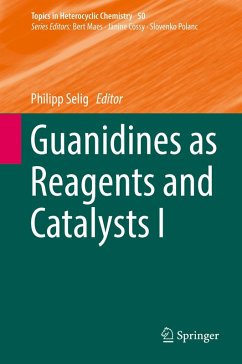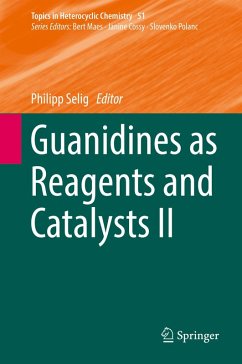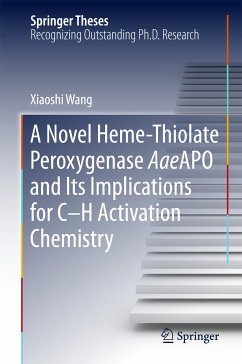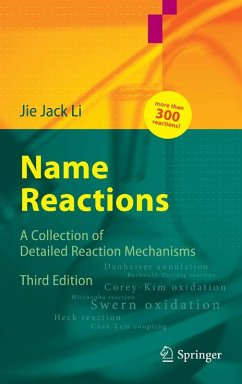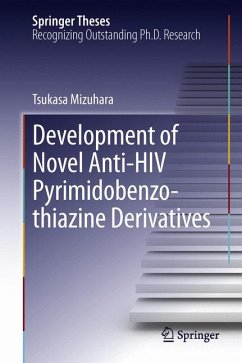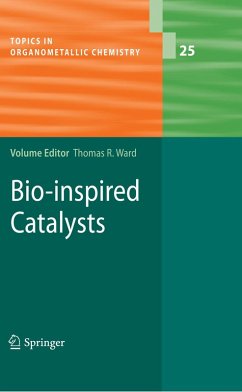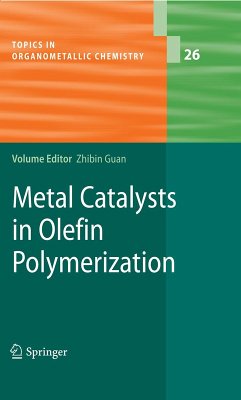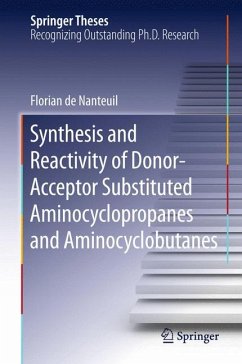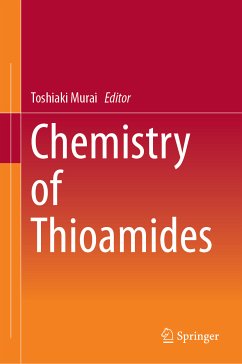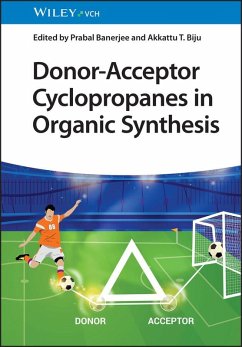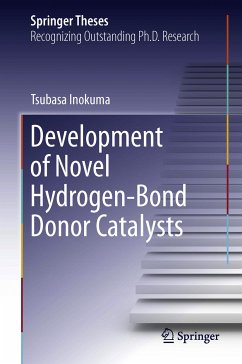
Development of Novel Hydrogen-Bond Donor Catalysts (eBook, PDF)
Versandkostenfrei!
Sofort per Download lieferbar
40,95 €
inkl. MwSt.
Weitere Ausgaben:

PAYBACK Punkte
20 °P sammeln!
This work describes novel, effective hydrogen-bond (HB) donor catalysts based on a known bifunctional tertiary amine-thiourea, a privileged structure, which has been proven to be one of the most widely used organocatalysts. These HB donor catalysts derived from quinazoline and benzothiadiazine were initially synthesized as novel HB donors with their HB-donating abilities being measured by analytical methods. They were found to be effective for a variety of asymmetric transformations including Michael reactions of a, b-unsaturated imides and hydrazination reactions of 1,3-dicarbonyl compounds. ...
This work describes novel, effective hydrogen-bond (HB) donor catalysts based on a known bifunctional tertiary amine-thiourea, a privileged structure, which has been proven to be one of the most widely used organocatalysts. These HB donor catalysts derived from quinazoline and benzothiadiazine were initially synthesized as novel HB donors with their HB-donating abilities being measured by analytical methods. They were found to be effective for a variety of asymmetric transformations including Michael reactions of a, b-unsaturated imides and hydrazination reactions of 1,3-dicarbonyl compounds. Thiourea catalysts that have an additional functional group are also described. Specifically, thioureas that bear a hydroxyl group were synthesized and subsequently used as novel bifunctional organocatalysts for catalytic, asymmetric Petasis-type reactions involving organoboronic acids as nucleophiles. These addition reactions were difficult to achieve using existing organocatalysts. One of the developed catalytic methods can be applied to the synthesis of biologically interesting peptide-derived compounds possessing unnatural vinyl glycine moieties. These findings introduce new criteria required for the development of organocatalysts for asymmetric reactions, thus making a significant contribution to the field of organocatalysis.
Dieser Download kann aus rechtlichen Gründen nur mit Rechnungsadresse in A, B, BG, CY, CZ, D, DK, EW, E, FIN, F, GR, HR, H, IRL, I, LT, L, LR, M, NL, PL, P, R, S, SLO, SK ausgeliefert werden.




